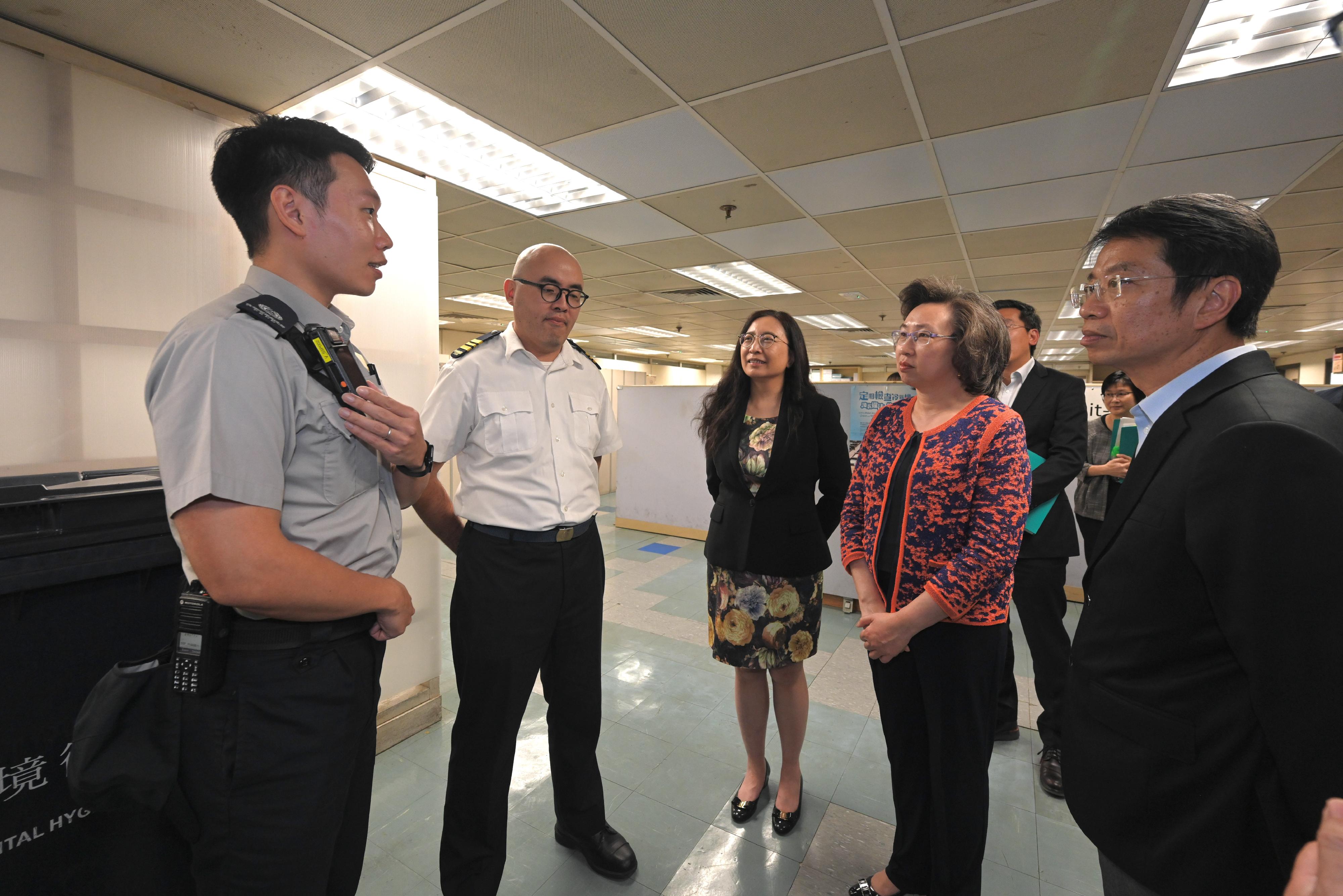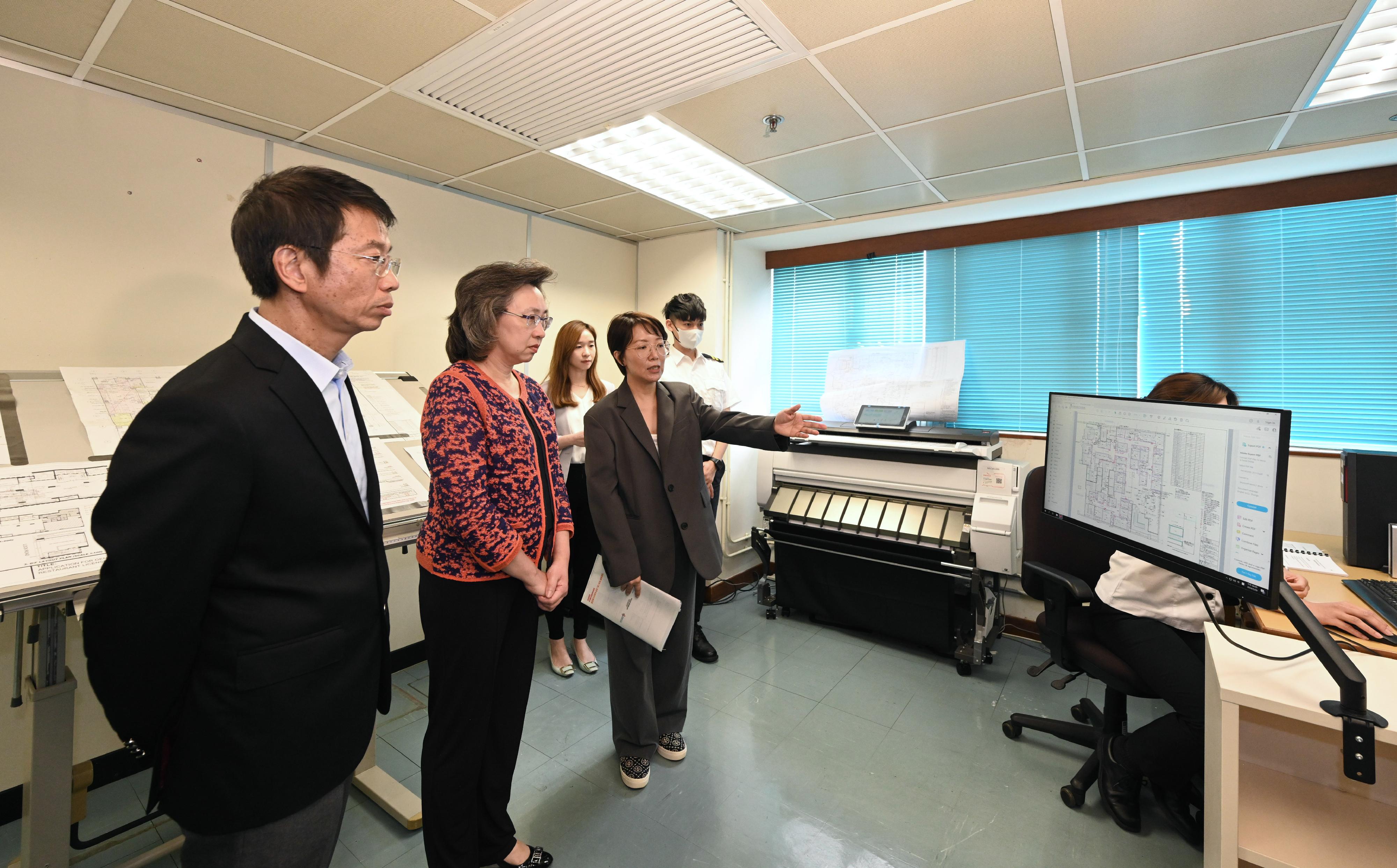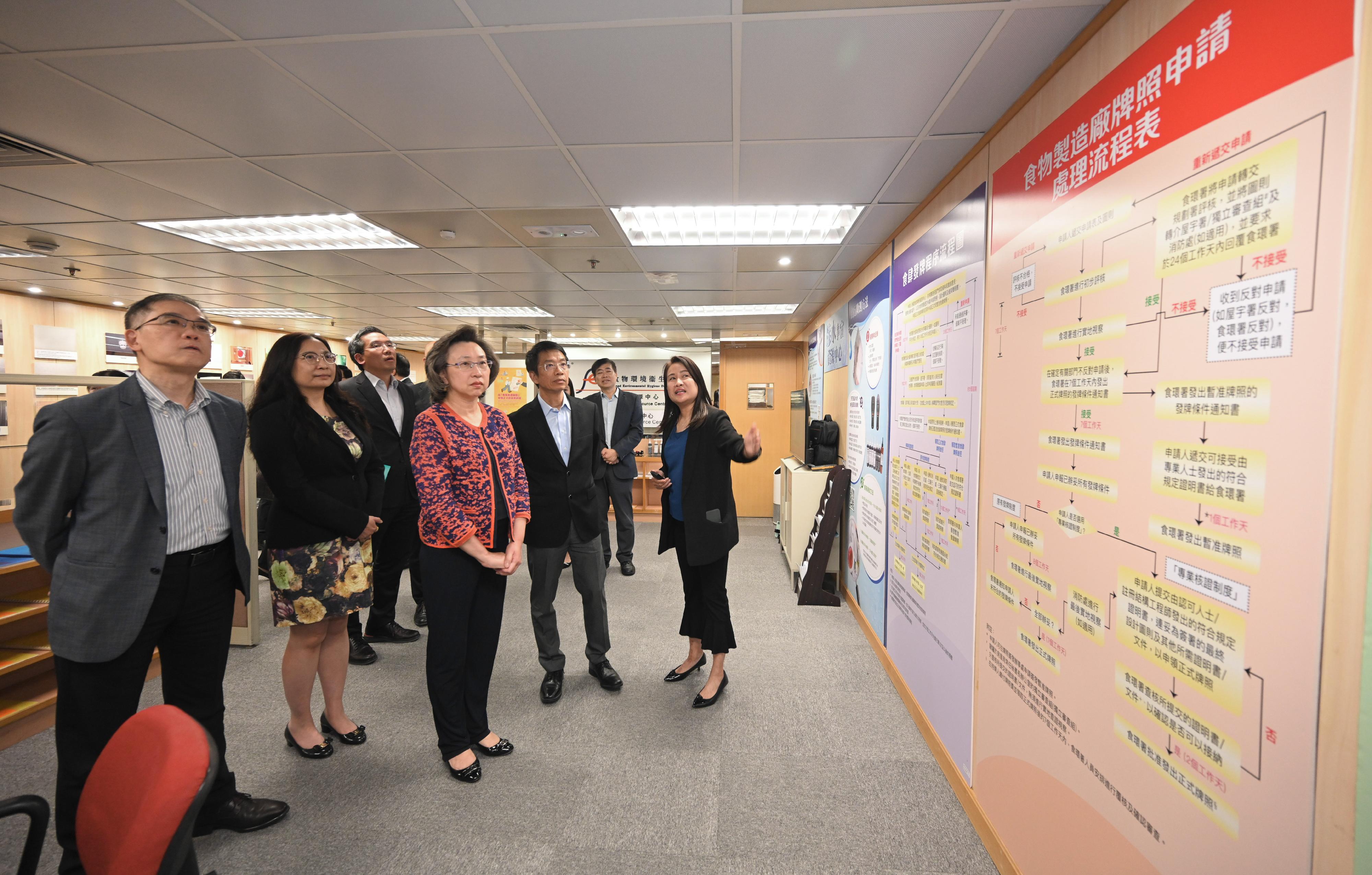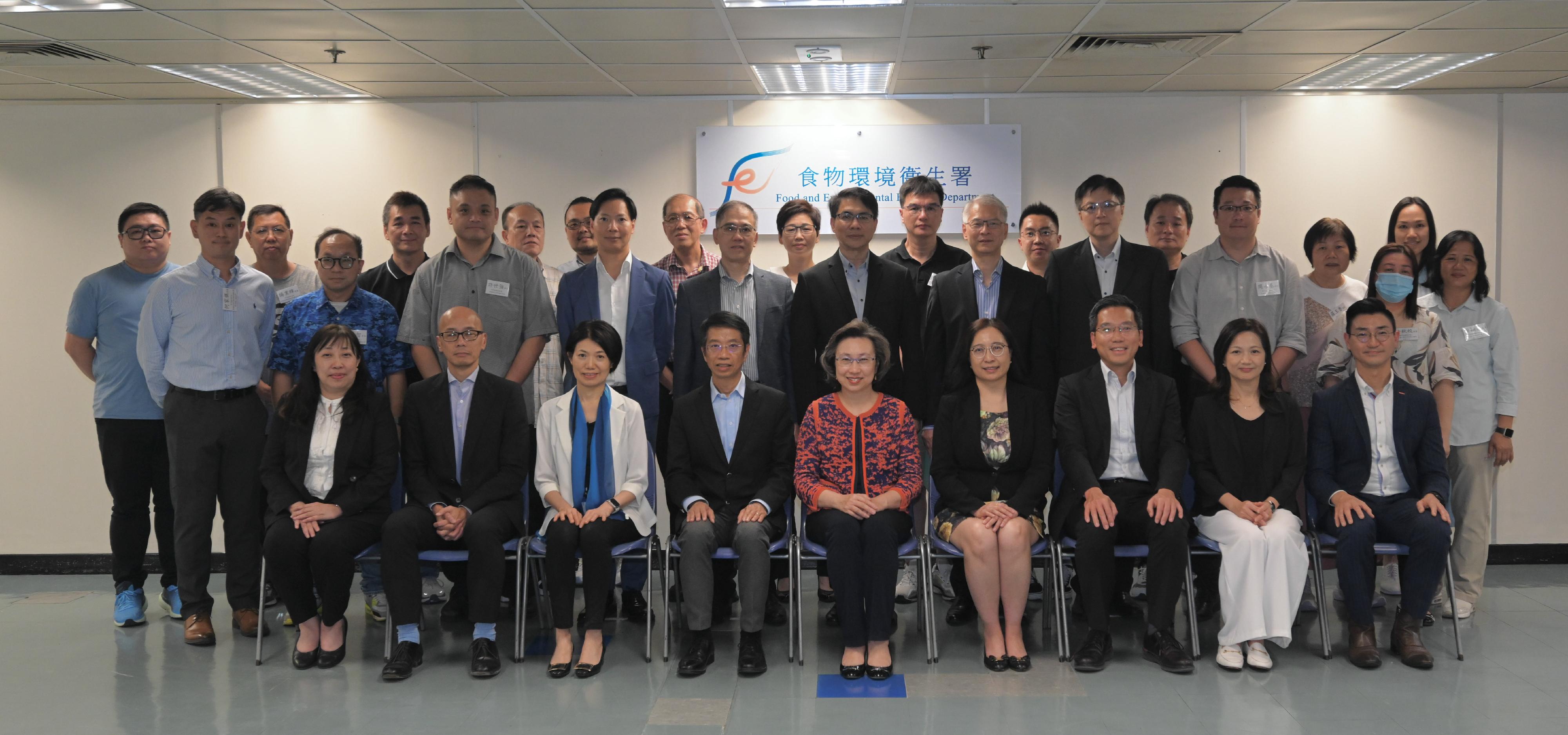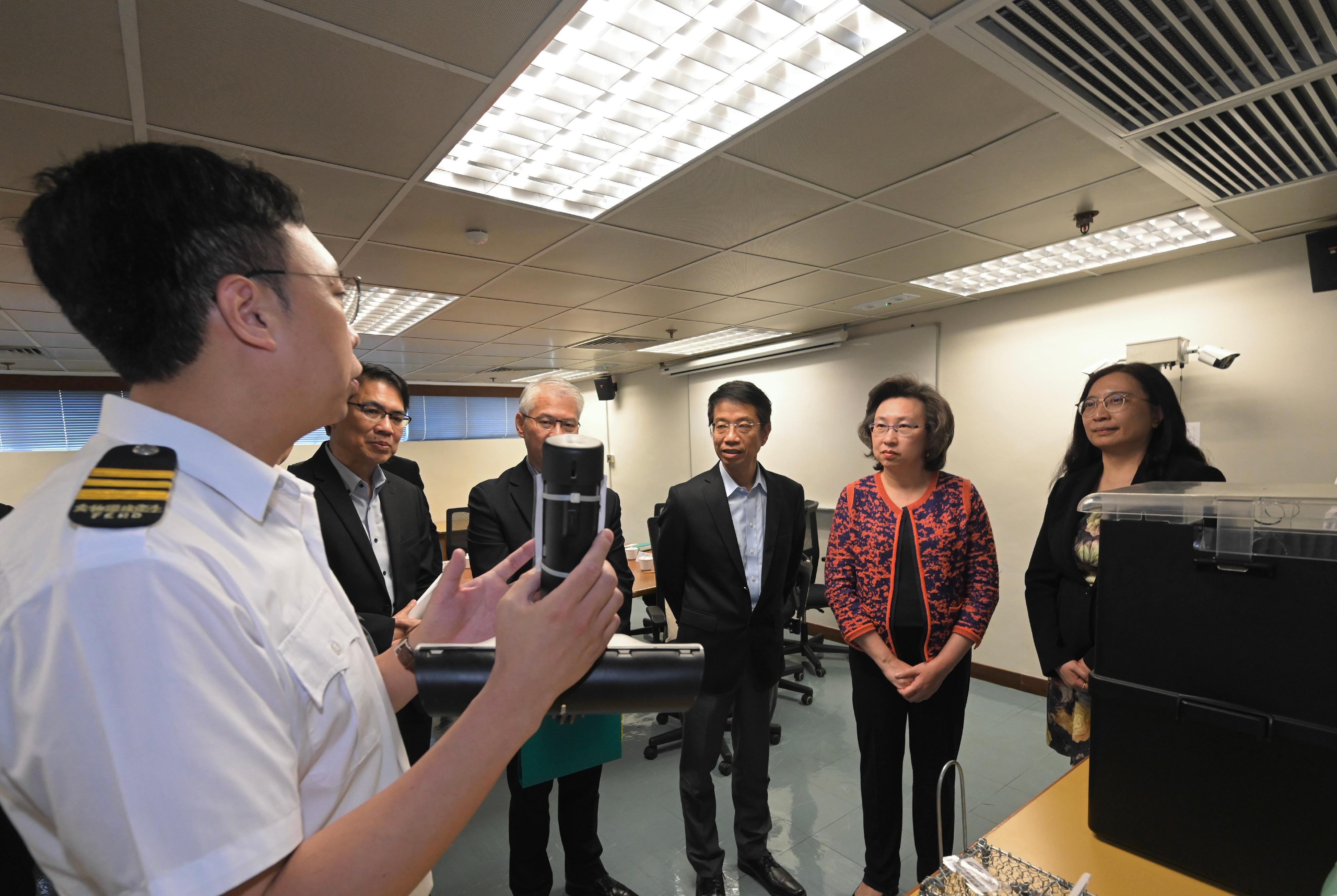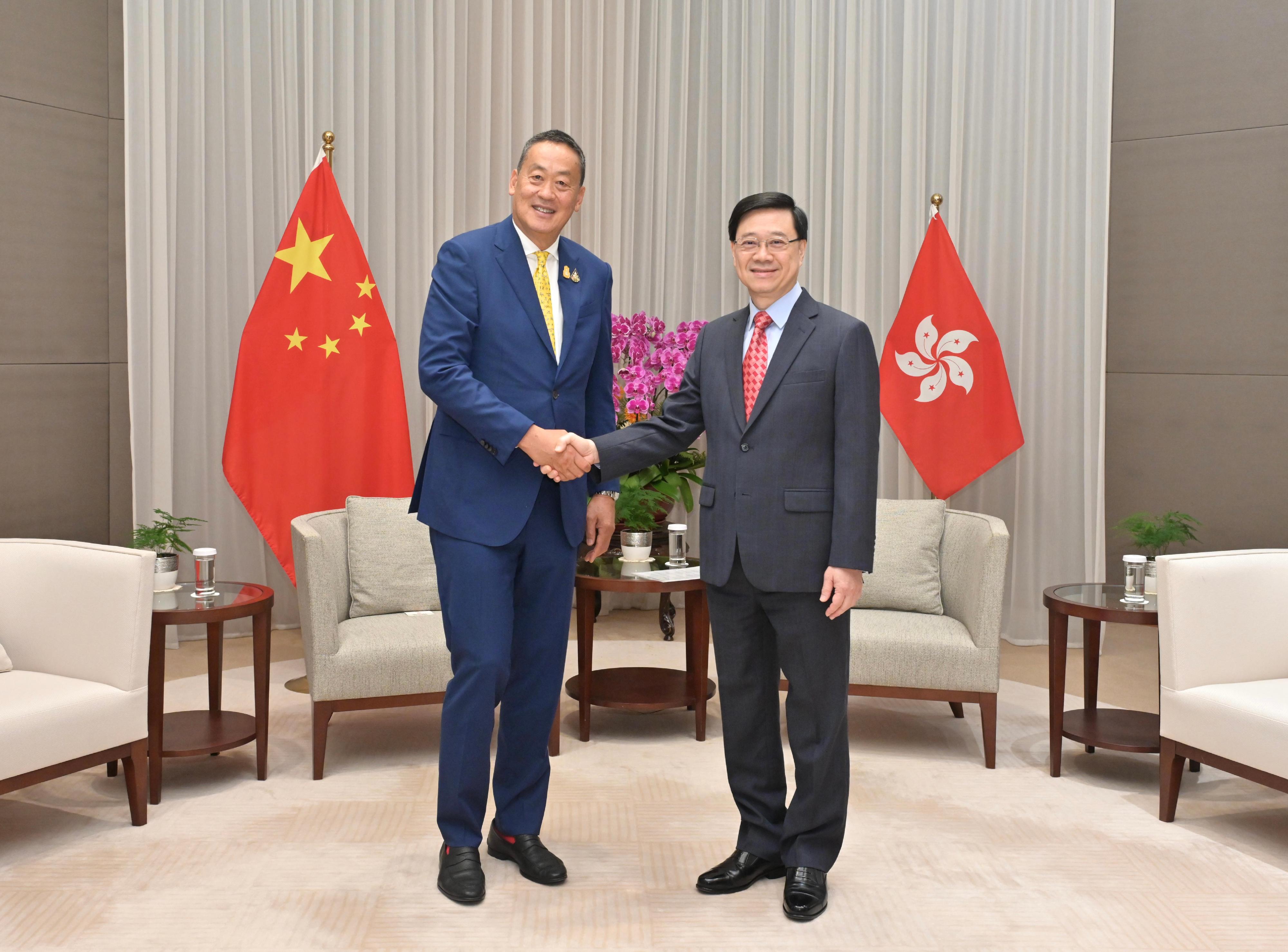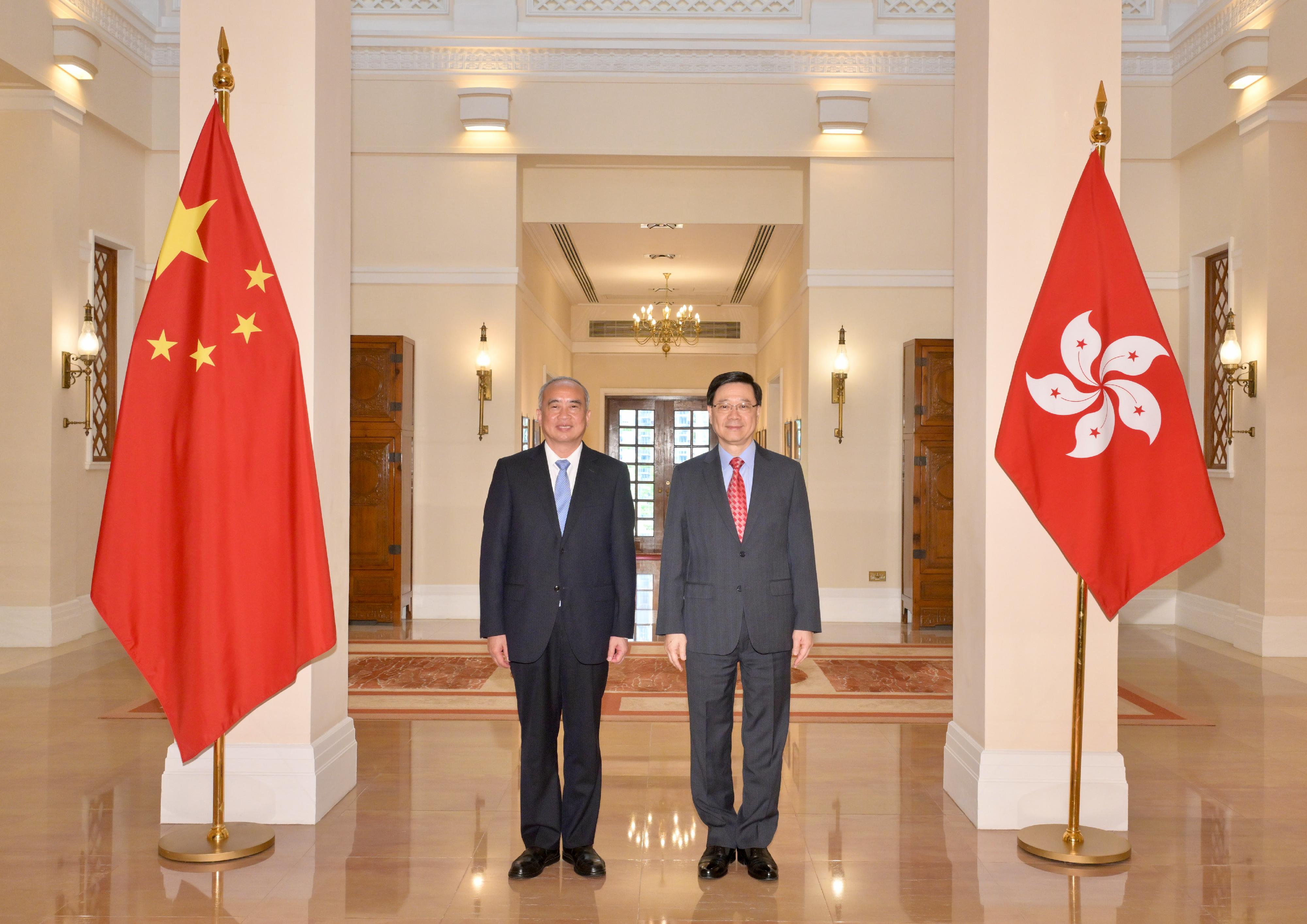LCQ3: Leasable non-domestic premises under the Hong Kong Housing Authority
Following is a question by the Hon Yung Hoi-yan and a reply by the Acting Secretary for Housing, Mr Victor Tai, in the Legislative Council today (May 29):
Question:
Regarding the leasable non-domestic premises under the Hong Kong Housing Authority (HA), will the Government inform this Council:
(1) of the following information on each leasable non-domestic premises in housing estates under the HA: its location (for example, in a market or shopping centre, or at the ground level of an estate), floor level, use, size, the year of completion of the estate in which it is located, as well as the lease period and the longest consecutive vacancy period of the premises’ units over the past 10 years, with a tabulated breakdown by housing estate;
(2) as it is learnt that the Commercial Properties Management Unit (CPMU) under the HA is responsible for handling leasing matters in relation to commercial premises in the HA’s estates and shopping centres, of the criteria adopted by the HA for recruiting CPMU staff, and whether the HA has provided relevant training to the staff concerned to ensure that they have a business mindset that can accurately keep tabs on the market and the positioning of the locality, thereby formulating appropriate policies to enhance the patronage and business turnover of markets and shops; if so, of the details; if not, the reasons for that; and
(3) in respect of leasable non-domestic premises which have been left vacant for a long time, of the principles, procedures and time required for the HA to consider changing their uses; whether the HA has considered reviewing the relevant procedures to shorten the time required for changing their uses, thereby making more efficient use of vacant land and premises; if so, of the details; if not, the reasons for that?
Reply:
President,
The reply to the question raised by Hon Yung Hoi-yan is as follows:
(1) With the completion of many new housing estates, the retail facilities under the Hong Kong Housing Authority (HA) have recorded significant growth in recent years. As at the end of March 2024, the HA has around 306 000 square metres of retail facilities, an increase of about 31 400 sq m compared to three years ago. In the next five years, the HA will add around 63 500 sq m of additional retail facilities, providing more shopping convenience for residents. The current information on the commercial premises available for letting and the leasing position of market stalls under the HA is set out at Annex I and Annex II respectively.
Among the HA’s 133 housing estates/courts with retail facilities, there are currently a few vacant premises in 58 of them. In the vast majority of these estates/courts (52 in total), the vacancy period of the premises does not exceed 12 months (note: excluding the period frozen from letting due to works) except six estates/courts (including Ma Tau Wai Estate, On Kay Court, Pak Tin Estate, Shek Kip Mei Estate, So Uk Shopping Centre and Wah Fu (I) Estate), more than half of them belong to the older type of housing estates/courts. Among them, the vacant shop at On Kay Court experienced the longest vacancy period of 24 months. The premises was originally operated as Medical Clinic. The premises concerned is located in an inconspicuous location on the first floor of the shopping centre. A total of 16 open rental tenders had been arranged without success. The occupancy rate of the remaining premises at On Kay Court is satisfactorily at 96.12 per cent. To enhance the commercial potential of the premises concerned and continue to look for commercial tenants, the HA will add advertisements and signage at suitable locations inside the shopping centre concerned.
Among the 15 markets directly managed by the HA, individual vacant stalls can be found in 10 housing estates, the vacancy period in more than half of which (six housing estates) is less than six months. The vacancy period for stalls in the remaining housing estates (Kwai Shing West Estate, Lai King Estate, Pok Hong Estate and Wah Fu (I) Estate) is less than 10 months.
The consumption patterns of the general public have changed in the wake of the pandemic. Individual tenants choose to surrender their tenancies on account of factors including the local retail market condition, economic situation, their own business directions, etc. There will be more commercial premises available in new estates under the HA in the future and more challenges to the leasing position are expected. Therefore, the HA will keep abreast of the market trend and critically review the trade mix and leasing position of our retail facilities on a continuous basis. The HA will also liaise with potential commercial tenants and proactively invite them to lease the premises in the housing estates/courts, so as to introduce businesses that are popular to the residents and able to meet their genuine needs. For example, the HA recently changed the trade for a vacant shop at Hoi Lai Shopping Centre to a Chinese Medical Clinic and attracted a number of tenderers and successfully let out the premises concerned. Also, in response to market trends and the needs of residents, the HA changed a premises at Siu Hong Court to the trade of “Express Delivery Services” and the premises has also been successfully let out. When formulating the tender plan, the HA will continue to listen to the views of various stakeholders, including local residents, and will adopt flexible leasing strategies to adjust the trade mix of the shopping centres. In order to improve the letting rate and take good care of the needs of residents, due consideration will be given to converting vacant premises for the operation of other trades which meet residents’ needs and consumption patterns, where technically feasible.
(2) The Housing Department (HD) has a professional team made up of various staff to provide professional services for the HA’s commercial facilities, such as property management, rent assessment, lease management, etc. In view of the complex and challenging nature of the management of commercial facilities, HD has provided regular training for relevant staff and encouraged them to continuously acquire new knowledge and enhance their professional competency, so as to maintain the high quality of services and enhance the competitiveness of the HA’s commercial facilities.
Regarding property management, aside from day-to-day management and maintenance work, HD’s estate management staff also liaise with commercial tenants to maintain good communication, promptly respond to their enquiries and needs, and assist in enhancing the image of the commercial facilities, with a view to attracting more customers for boosting the business turnover. At the same time, the estate management staff will take into account the views from the market and local stakeholders when considering converting vacant premises for the operation of other suitable trades if it is technically feasible.
Regarding rent assessment, the estate surveyors of HD will take into account the latest market condition, and make reference to the rental information of comparable lettings in the HA and private property market to determine the rent at fair market value, having regard to relevant factors that would affect rental value, such as location, trade, size, pedestrian flow of the premises, property market condition, etc. The rent set for tenancy renewal or vacant premises for leasing is determined according to the market condition in a flexible and pragmatic manner. In the process of tenancy renewal, HD will actively negotiate with commercial tenants on the assessed rent upon renewal so as to reach a consensus on the renewal as soon as possible and ensure that the daily needs of the residents will not be affected.
Regarding lease management, the HA will carry out careful trade mix planning and marketing when new retail facilities are near completion. Once retail facilities are completed, the HA will adopt highly flexible marketing and leasing strategies to ensure that changes can be made to dovetail with the market trend and meet the needs of residents. The HA understands the importance to keep pace with the times, therefore it will determine the appropriate commercial facilities having regard to the factors such as the scale of the estate, commercial viability and the availability of shopping centres and retail facilities in the vicinity in designing and building new estate. For example, during the design stage of a new public housing development, the HA will consider whether large public markets under the Food and Environmental Hygiene Department are available or under planning nearby. If such markets are already or will be available, the HA will not provide relatively small market facilities to avoid adverse competition. Therefore, commercial facilities vary in different new public housing developments and there may not be market facilities in all new developments. According to the current practice, the HA will only consider providing supermarket facilities with wet trades or shops selling groceries and fresh supplies for new public housing developments in smaller scale.
(3) At present, non-domestic premises in public housing estates are used for shops, welfare premises, councillors’ offices, storerooms, contractors’ offices, etc. The HA understands that in the letting of commercial premises, timely and appropriate decisions are required. The HA will determine the trade mix of the premises and the trades of individual shops taking into account the daily needs of local residents, the surrounding environment of the estates, retail facilities in the vicinity, scale of the shopping centres, retail market condition, technical feasibility, etc, adopt flexible leasing strategies and proactively liaise with potential tenants for the leasing of premises so as to provide residents with appropriate shopping services.
The HA will review the trade mix of our shopping centres from time to time, taking into account the needs of local residents. The HA will conduct feasibility studies on converting vacant premises for other suitable trades, and take opportunity to introduce businesses that are the most popular and able to meet the actual needs of residents. Recently, there are examples of premises successfully leased out after change of business in Hoi Lai Shopping Centre, Wah Fu (I) Estate, Shui Pin Wai Estate and Kwai Chung Shopping Centre. Among them, the premises for Chinese medicine business in Hoi Lai Shopping Centre attracted a significant number of tenderers. Having regard to the needs of the market and local residents, the HA has added other trades in the tender invitation for a premises in Wah Fu (I) Estate which was originally a barber shop and was eventually awarded to the business of providing quick haircuts with a favourable rent. In Shui Pin Wai Estate, a shop that used to be a liquefied petroleum gas and kerosene store was tendered for the business of books, stationery and toys upon consideration, and it was successfully leased out. In addition, a then children’s amusement centre in Kwai Chung Shopping Centre was also successfully leased out as education and cultural centre upon conversion. Although individual tenants surrendered their tenancies recently, the HA will take this opportunity to keep abreast of the market trend and introduce new businesses to housing estates with a view to meeting residents’ needs. In addition, the HA will also consider to rearrange the market stalls, change the usage or reduce the market size, etc, so as to improve the occupancy rate and provide residents with appropriate and diversified goods and services choice.
The HA reviews the use of its non-domestic premises from time to time. When there are non-domestic premises available, the HA will conduct feasibility studies on changing their use, taking into consideration the requirements of relevant legislations and land lease conditions, technical feasibility, local views and actual circumstance of individual estates. The time needed to handle each case will vary subject to the considerations of individual cases and the actual circumstances of the housing estates. read more


